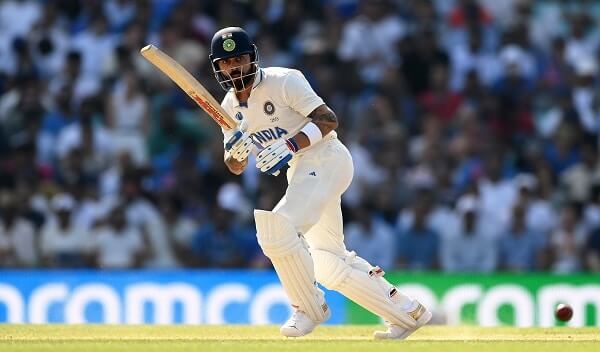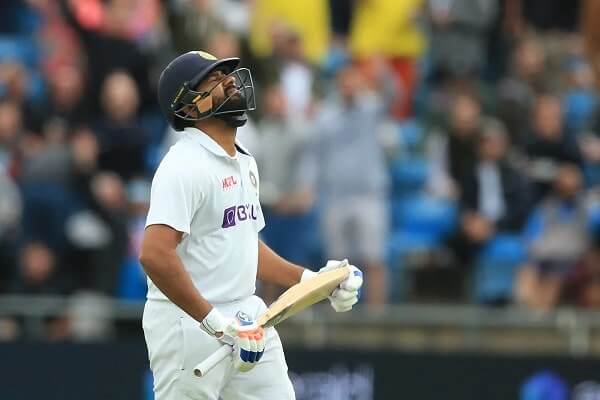Another ICC final, another India loss. As India reels from its latest defeat in a high-stakes ICC match, once again the team and its supporters find themselves bereft of answers, hope, and, most glaringly of all, trophies. The usual recriminations have begun, and India’s 24 hour news channels are blaring, as ever, with one question: how has India let it slip again?
India’s 209 run defeat in the 2021-2023 World Test Championship Final came rapidly on the last day, at the hands of a rampant Australian bowling attack, led by a new tormentor in Scott Boland, and an all too familiar foe in Nathan Lyon. But it was with the bat that Australia set up victory on the first day, with centuries to Travis Head and Steve Smith, the latter anointed as the greatest Test player of his generation by Virat Kohli himself.
As always, in sport, things are never as good as they seem, and never as bad as they seem. In this second edition of the World Test Championship, it was India’s stellar away series performances that saw the side reach its second consecutive WTC final, including a series draw in England, and an unfathomable series win with a severely depleted side in Australia. By most measures, India’s campaign was an unexpectedly successful one.
Many explanations have been offered for India’s WTC final loss. Rohit Sharma’s decision to bowl first after winning the toss, the omission of the world’s best Test bowler in Ravichandran Ashwin, and that constant refrain, the susceptibility of India’s batters to quality seam and bounce.
Congratulations Australia on winning this #WTCFinal and closing out this cycle of test cricket. It is disappointing to end up on the wrong side of things, nevertheless it was a great effort over the last 2 years or so to get here in the first place.
Amidst all the chaos and…
— Ashwin 🇮🇳 (@ashwinravi99) June 11, 2023
As Ashwin himself described it, the reaction has been of “chaos and scathing assessments”.
It is easy to point to perceived technical and strategic errors in analysing a loss – but these are inevitable, and necessarily hindsight-driven. If errors are to be fairly analysed, then they must be viewed in the context of India’s broader performance during this campaign, during which India enjoyed unprecedented success in England and Australia. So rare was India’s series victory against a full-strength Australian side, that very few players – if any – would trade that victory for a WTC triumph.
Spare a thought too, for Indian coach Rahul Dravid, who failed to win an ICC tournament outright in his illustrious 16-year career, and who was unceremoniously dropped immediately before India’s famous win in the inaugural 2007 ICC T20 World Cup. Dravid, whose only ICC triumph came in India’s joint 2002 Champions Trophy – but was shared with co-champions Sri Lanka – was also at a loss to explain the side’s latest ICC World Test Championship loss.
What, then, can be made of India’s predicament, and how can fans, players and staff rationalise the constant disappointment?
Ajinkya Rahane and Ravindra Jadeja have steadied the ship but have a huge task to keep India in the game 🙌
Follow the #WTC23 Final 👉 https://t.co/wJHUyVnX0r pic.twitter.com/90bTKp1cro
— ICC (@ICC) June 8, 2023
For one thing, as the likes of Rohit Sharma, Virat Kohli and Ajinkya Rahane enter the twilight years of their career, India can take great comfort in the strength of its next generation. In the most recent cycle, India has unearthed the likes of Shubman Gill, Shreyas Iyer, Axar Patel, Mohammad Siraj, Washington Sundar, and – pending his return from injury – has also seen 25-year-old Rishabh Pant reach even loftier heights. It’s a veritable pipeline of talent, one of which any nation would be envious.
Which brings us to the next silver lining: just as losing can often be contagious, so too is winning. As any professional athlete will tell you, knowing how to win big matches is nearly as important as building the talent needed to win in the first place.
Just ask the Australian camp – though the men’s side may not be the formidable team it once was, Australia knows how to win big matches more often than any other side in history. In the last decade – over the same period that India has failed to win a single ICC tournament – Australia has won a staggering nine ICC trophies, being this year’s WTC, three ODI World Cups (two women’s, one men’s) and five T20 World Cups (four women’s, one men’s).

The Indian team, on the other hand, contains only five players who have previously won an ICC tournament – Sharma, Kohli, Jadeja, Ashwin and Yadav. For a golden generation in Indian cricket, that is a disappointingly low number. It’s the same reason South Africa’s cricket team has famously built a reputation as the perennial “chokers” of ICC tournaments, a tag that India will desperately hope to avoid.
But all it takes is just one win; and such is the depth of India’s talent, once its players learn how to win on the biggest stage, the losses will soon be long forgotten. As the scars of past losses make way for the belief that only victory can instil, there is a sense that success will be a fait accompli – as long as process continues to be followed.
Read More: TATA IPL 2023: A massive step change




